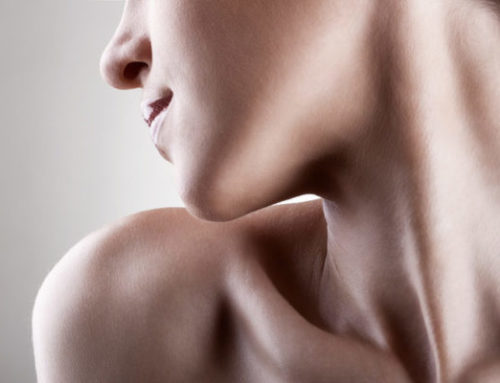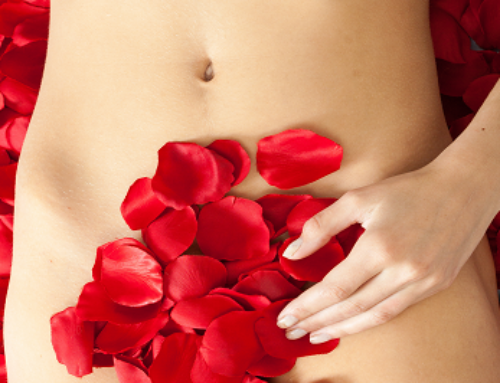When you break it all down, everything in the body, including sex, is dependent on good blood flow. Our body’s way of nourishing itself and keeping itself vibrant and alive is by carrying oxygen, hormones, and nutrients via the bloodstream to all tissues and cells. The more activity that a certain part of our body engages in, the more blood flow is directed to that area. This is true for muscles when exercising, the intestines while digesting, and the brain while studying or learning a new task. Sex is no exception.
For men, blood flow works to fill up erectile tissue producing an erection and stimulation of the prostate gland to start exuding pre-ejaculatory fluid. Women also benefit from blood flow to their erectile tissue (which is mostly internal) with increased size and sensation of their clitoris as well as lubrication at the vaginal opening in response to sexual arousal. Good blood flow to the brain also encourages a good energy and arousal level and proper flow of hormone signals back and forth from brain to genitals. So how do we ensure and maintain good blood flow?
1. Arteries – Arteries are the channels through which our blood is transported throughout the body. When they are in good shape, they respond by relaxing to allow more blood flow whenever the need arises. Hardening of the arteries, or atherosclerosis, limits the ability of the arteries to respond to hormonal signals, decreasing their response to sexual arousal. Without the proper response, there may not be enough increase in blood flow to engorge the erectile tissues in either men or women. Keep your arteries healthy by eliminating trans fats from your diet. Eating a balanced diet low in sugars and high-glycemic carbohydrates also keeps your body from producing too much triglycerides, which clog up arteries by sticking to their walls. Also, consider reducing the amount of fructose and high-fructose corn syrup (corn sugar) in your diet, since the body does not treat these the same as sugar and instead increases your triglycerides. High blood pressure also decreases the availability of blood to the tissues because the arteries tend to tighten up. Watch your salt intake and take 5-10 minutes each day to practice some quiet relaxation or meditation. These are proven ways to protect against high blood pressure.
2. Nerves – Nerves transmit all the signal back and forth from all areas of your body to your brain. They also send signals to arteries, tissues, and muscles to respond to sexual stimuli. If the nerves are not healthy or not working properly, you lose sensation and your body does not respond as quickly or as completely as it should. The biggest culprit damaging nerves is diabetes and elevated blood sugar. Nerves are damaged by chronic exposure to high blood sugar, and diabetics often get neuropathies in later life if they have not kept good control of their blood sugar. Eating smaller meals more frequently rather than a few very large meals a day helps your body maintain a more steady blood sugar level without the spikes that damage the body and without the lows that make you insanely hungry. Watch your alcohol intake too, since it tends to cause uncontrolled blood sugar, but also produces toxins that pickle your nervous system as your body metabolizes it.
3. Tissues – Our bodies are designed to be in motion and be put to use. Our modern lifestyle allows for the opportunity to sit on our behind for most of the day, decreasing blood flow to our legs, our genitals, and putting a great deal of strain on our lower backs. We have to get up and move for at least a few minutes every half hour or so. Now we’re back to “use it or lose it” again. This is simply how the body works. You want to have good blood flow to your genital? Use your genitals – have sex. Those people who have sex at least once a week have a better chance of keeping their sexual functioning as they get older because they are encouraging regular bursts of blood flow to the area.
4. Overall – Our bodies are constantly responding to the environment around us, including stress and anxiety. When we become anxious, our muscles become tense putting pressure on small blood vessels. This can effectively cut off the blood supply in the arterioles and capillaries, resulting in sore, tired muscles with the sensation of knots. Anxiety also clamps down on blood flow to the genitals because it activates the fight or flight response. Becaus of this, it tends to work against sexual arousal and is often the cause of sexual dysfunctions.
So what are you doing to keep optimal blood flow and healthy sexual functioning?






I ran cross-country in high school. I am now 27 (28 in October of this year). The reason I give my age, is that though I stopped running ten years ago, I continue to have low blood pressure, and have folks in the medical profession comment on it. I am low income and do not eat well, but eat as healthily as I can. You are spot on with the idea that cardio is the root of good health. Once one cares about their cardio health, everything falls in to place. I also had to comment because this is the first time that I have seen a picture of a muscular man with shoulders which equal his biceps. I am a man, and when I have had the chance to work out, or have had physical jobs, I develop in the shoulders as much as the biceps. Thank you for showing a normal healthy physique, and not one of these plastic looking guys, who look like they forgot that they had other parts of their upper body besides their abs, pectorals and biceps.